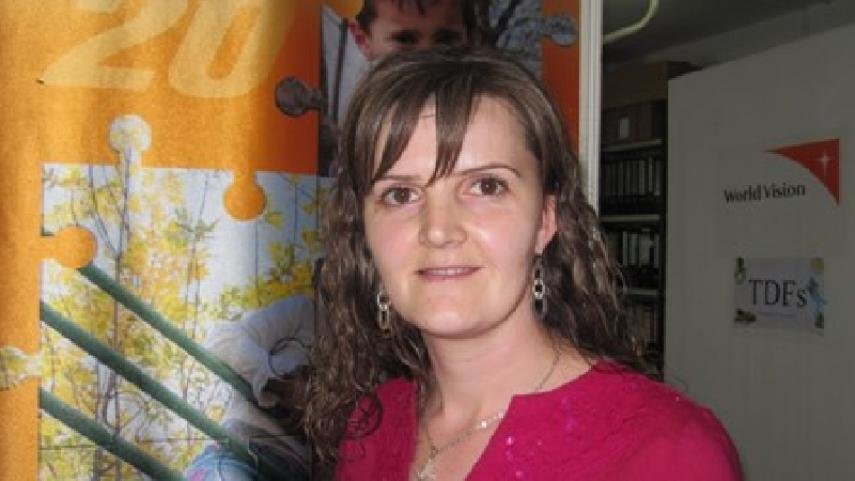NON-GOVERNMENTAL ORGANIZATION
According to official data there are no beggar children in Gyumri

The World Vision Armenia has been operating in Gyumri since 2001. What are the main directions of your work here?
Currently, we implement a few projects. The most important one is focused on protection of children's rights, including the child's right to education and health, etc. We work with different non-governmental organizations and condominiums, raising their role in raising issues within their communities. Jointly with the churches, we have created Sunday schools and support the Diocese to strengthen their role. We publish textbooks for children of various age groups, as well as supporting materials for the teachers. And the most important is the program of individual support to children that is implemented through sponsors who provide the main means for the implementation of the above-mentioned projects.
We have 3,700 registered children. Ninety percent of these children have sponsors. We also closely cooperate with schools and strengthen student- and parent-councils.
When we just started working with schools, no such entities existed in many of them and they did not even understand what their role could be, but now these groups exist, are active and raise issues, such as those related to libraries or provision of the same information and data in different ways in the textbooks.
Also, annually on July 01, we send 600 children to Toros village for a ten-day summer camp where children learn to be independent, interact with their peers, play games and receive Christian education.
Which is the age group for your beneficiaries and what is the principle of assisting them?
We register children under the age of eight, to be able to find sponsors. If the sponsor does not want to continue supporting them, they still remain with us until they are 12-13. But we also have children of the army age, who still remain in the project, since their sponsors still continue supporting them. Generally, the entire sponsorship money is not individually transferred to just one child, since this amount of money is used to support the implementation of other projects too.
Children of over 100 communities of the Shirak marz are deprived of the right to pre-school education. What projects does your organization implement in this direction and what other violations of rights have you registered in the Shirak marz?
We currently work in two communities, in Mush and Sherami districts of Gyumri, that are quite remote from the city center and where no kindergarten has ever existed. I have no clue if the government will ever address this issue or not.
We have created Day Centers where the children stay for the whole day and participate in different clubs.
The absence of inclusive education is also a serious issue in our marz which is addressed only through standalone projects: only once a project has been implemented by "Pyunik" organization to address this issue.
Are there beggar children in Gyumri?
Once we had a children's protection program, during which we had established a night duty to identify children whose parents made them beg in the streets. Psychologists worked with them and provided their parents with some sort of work to somehow correct the situation. And now, according to the official data of the Police, no beggars exist in Gyumri. When I passed this message to schools, everyone was skeptical about these data, however these are the official data, and I cannot distrust them.
Maternal and child health is also within your main mission. What projects do you implement in this sphere, given that in Gyumri there are often complaints about improper implementation of the free medical care to children under the age of seven?
Since 2009, together with the Ministry of Health we implement the "Child's health is a priority" campaign, the goal of which is to reduce the mortality rate of delivering mothers, as well as children; to improve the quality of services; to organize public awareness events that specifically target the issue of HIV/AIDS among others.
As to the medical care of children under the age of seven, now it has become quite manageable: they receive certificates that officially state parents that the medical service they receive is free of charge. It is a different question whether they are satisfied with the quality of the service or not? For example, recently we helped a child who was to undergo a surgery, to receive medical service in Yerevan, since the parent was dissatisfied by the doctor's approach and requested that we send her to Yerevan.
Interview by Karine Ionesyan
Source ' www.hra.am

